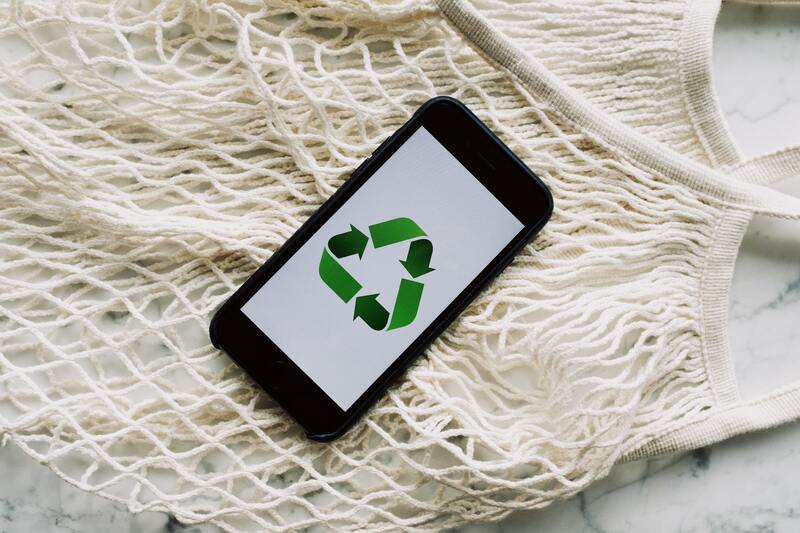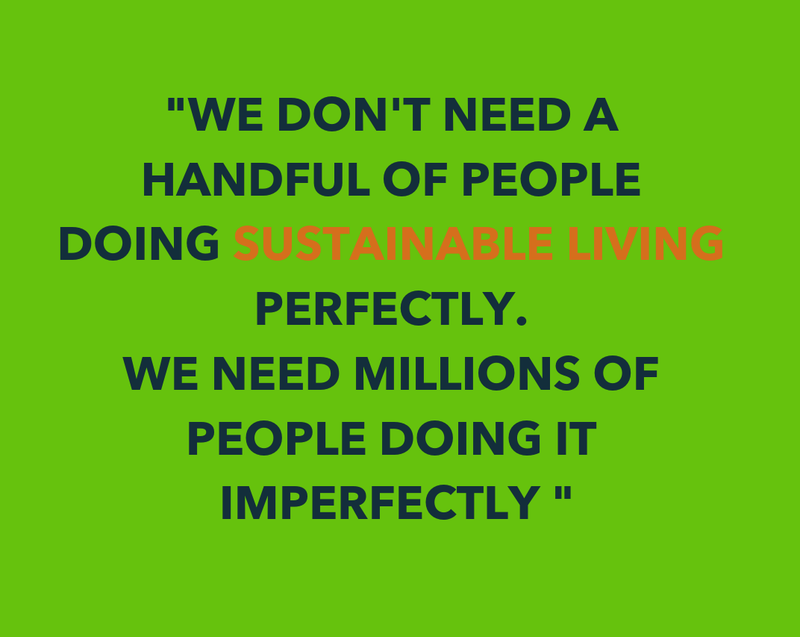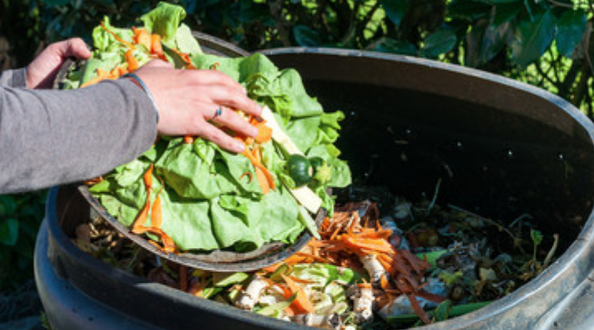|
Just because something is biodegradable, doesn’t mean it will properly break down when thrown in the garbage. In order for an organic item to decompose properly, it needs oxygen. But because most landfills are so tightly packed to get in as much trash as they can, they squeeze out all the oxygen, making it nearly impossible for something like an orange peel, apple core or piece of paper to decompose. So what’s the solution? Composting is the natural process of decomposition and recycling of organic material into a humus rich soil amendment known as compost. For any business or institution producing food waste, this organic material can be easily decomposed into high quality compost. Good things to compost include vegetable peelings, fruit waste, teabags, plant prunings and grass cuttings. These are fast to break down and provide important nitrogen as well as moisture. It's also good to include things such as cardboard egg boxes, scrunched up paper and fallen leaves. There are two different ways to compost: Commercial Composting+Backyard Composting.In commercial composting, you collect the approved of compostable items and send them away to be composted by another facility or organization. In backyard composting, you collect compostable items yourself (for most people, in their backyards…hence the name), monitor the composting process and then get beautiful compost to use throughout your yard and garden. Commercial Composting How can I have access to commercial composting? Some cities offer composting services the same way they do trash or recycling, so first check with your local waste management facility to see if it’s something offered. Because composting isn’t as widely offered as something like traditional recycling, there might be a cost associated. Other places to find commercial composting near you:
Where do I keep my compostable items until they’re ready to be picked up / dropped off? Any large airtight container should do the trick to keep compost items safe to store in your home under your sink or in your pantry. Or keep items in a big bowl, paper bag or compost bag in your fridge or freezer to keep it from smelling or attracting bugs. Whether you bring your compost to be dropped off or it’s picked up, transport it in a bag that is also compostable like a paper grocery bag, or specially-made compost bag. Backyard Composting What do I need to backyard compost? You need a place to build your compost pile. This could be a big empty trash bin or simply a small patch of your yard where you’ll collect items. To compost properly you also need the components of green matter (fruits, veggies, grass clippings, etc.), brown matter (twigs, dirt, dead leaves, etc), water and air. Get this mixture, and you’re good to go! What items are compostable in backyard composting? Any plant or animal based product is compostable, though it’s not recommended to compost meat, dairy or fish scraps at home. But anything else from your old bamboo toothbrush handle, to used matches, to hair from your hair brush, to stale tortilla chips are all backyard compostable. What’s the process like and how do I maintain my backyard compost? It’s recommended to find a dry shady place outside to keep your compost pile or bin, but not too far from a water source like a hose. Wetting the pile, and stirring periodically with a shovel or pitchfork will also help the items to break down. It can take anywhere between two months to two years for items to fully break down. You can learn more about backyard composting here! What can I use my homemade compost for? Compost is rich in nutrients and natural fertilizers so it’s great for gardening, landscaping and potting indoor plants. If you’ve got a plethora, grab a wheelbarrow and share some with a neighbor. Have you started composting? What tips, tricks and resources have you found helpful?
0 Comments
Leave a Reply. |
CONSCIOUS ALIGNMENT
© COPYRIGHT 2024. ALL RIGHTS RESERVED.




 RSS Feed
RSS Feed